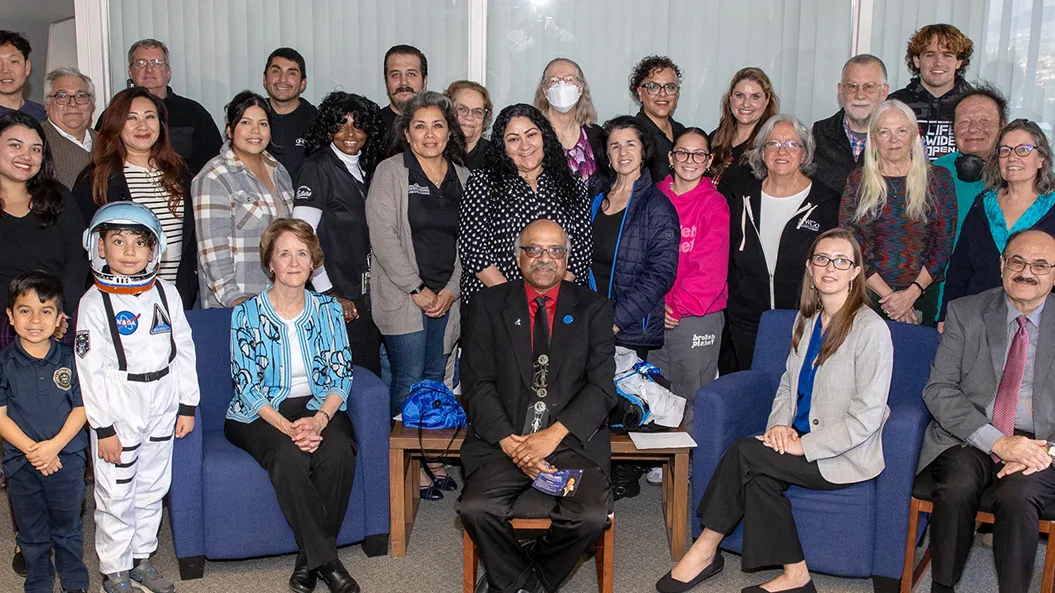Alan Llavore | Office of Strategic Communication | 909-537-5007 | allavore@csusb.edu


“The universe is full of magical things patiently waiting for our wits to grow sharper.” Sastry Pantula, dean of the College of Natural Sciences, included this compelling quote from Kathryn C. Thornton in his opening remarks at the March 14 Gerald M. Scherba Lecture Series. The much-anticipated event featured guest speaker Thornton, a former astronaut and physicist, who shared anecdotes and insights from her illustrious career at NASA.
In his remarks at the in-person event that was also livestreamed, Pantula set the stage with an homage to Thornton's contributions to space exploration. He highlighted her role in the landmark 1993 Hubble Space Telescope servicing mission and her advocacy for STEM education.
What followed was an engaging conversation between Thornton and her daughter, Carol Hood, associate dean of the College of Natural Sciences. Thornton addressed gender challenges in her fields, advocating perseverance and focusing on skill to overcome stereotypes. She also shared anecdotes from her spacewalk experiences, including a memory of the mesmerizing sight of a solar array deployment over the Middle East.
“When the jet plumes hit that (solar array), it bent in half, and then it started flapping. It was 40 feet long, and it was flapping (like a bird flapping its wings). We happened to be over the deserts in the Middle East, Saudi Arabia, the Red Sea…, and it looked like a pterodactyl cruising over those deserts,” Thornton said. “It was mesmerizing. We hung out and looked at that for quite a while before we finally got back to work.”

Thornton spoke about teamwork dynamics, as well. She highlighted the importance of collaboration over individual credit, a principle that served her well throughout her career. She also recounted the rigorous process at NASA of developing flight rules prior to the flight, describing “knockdown, drag out, scream at each other across the table” discussions with the flight team, followed by “going out and getting a beer together because it’s not personal.” Her experience of intense meetings followed by camaraderie highlights the essential nature of professionalism and collaboration, lessons extending well beyond the confines of space missions.
"Everybody knows what the goal is," Thornton said. "Teams that can focus on the goal more than anything else can work."
Thornton exemplifies a life dedicated to expanding the frontiers of human knowledge. From her first mission on STS-33 to the Hubble servicing mission and her many years inspiring students in academia, her endeavors have left an indelible mark on the cosmos and on Earth. Her academic career following NASA, including a 23-year tenure at the University of Virginia, has been as equally impactful, guiding future engineers and scientists towards new horizons.
Thornton's legacy, crowned by her 2010 induction into the Astronaut Hall of Fame, stands as the legacy of a pioneer who ventured into the vast unknown, not only to discover but also to inspire.